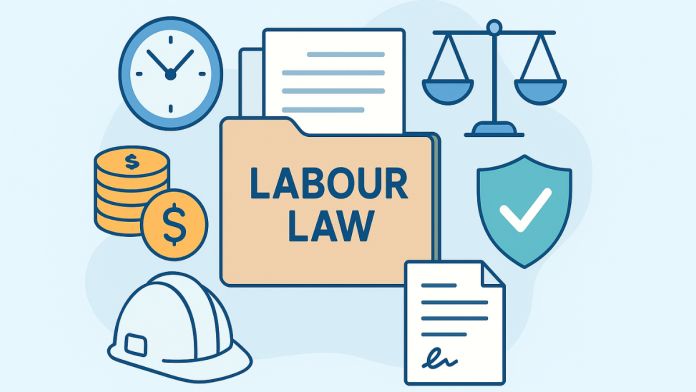Small businesses face many challenges, and following labour laws is a big one. These laws protect workers and help companies avoid trouble like fines or lawsuits. Many small firms lack the time or money to hire legal experts, so they need simple, actionable advice.
Labour laws apply to every business, no matter how small. They cover things like fair hiring, proper pay, safe workplaces, and ending jobs correctly. Small businesses often don’t have dedicated HR teams, so owners handle these tasks themselves. Mistakes can lead to costly penalties or court cases.
Master Hiring Rules
Hiring is where compliance starts. Write clear job ads that don’t exclude anyone. For example, avoid phrases like “young team” that could suggest age bias, as laws prohibit discrimination based on age, gender, or race. Make sure to check if workers are employees or contractors. Employees get benefits like sick pay, while contractors don’t. Mixing them up can lead to fines. Use simple, written contracts that outline job roles, pay, and hours, signed by both sides.
Federal court sentences 6 in forced labor case involving child victims and cult group
Always verify a worker’s right to work in your country and keep records to avoid immigration issues. If you need background checks, get the worker’s permission first to respect privacy laws. Store personal data securely to prevent leaks, which can cause legal trouble. These steps ensure your hiring process is fair and compliant.
Get Pay and Hours Right
Pay and work hours come with strict rules. Every business must pay at least the minimum wage, which varies by location. Track hours carefully, as overtime usually requires 1.5 times the normal pay rate. Provide pay slips showing earnings and deductions, and ensure taxes are deducted correctly. Mistakes here can lead to big fines.
Workers are entitled to breaks, like a meal break after five hours, and at least one rest day per week in most places. Paid holidays are also required, based on time worked, even for part-timers. Keep records of hours and payments for a few years to prove compliance during inspections. Paying on time, every time, avoids disputes. Using direct deposit can make this easier.
💼 Behind India’s business boom lies a labour law trap—and foreign companies are walking into it
Prioritize Workplace Safety
A safe workplace is a legal must. Check your workspace for hazards like slippery floors or loose wires and fix them quickly. Provide training on safe practices, such as how to lift heavy items without injury. If the job requires gear like helmets or gloves, supply it—it’s a small cost that prevents big problems.
Report any accidents and keep a log, as laws require this for serious incidents. Ensure good air, lighting, and space to support worker health. Mental health matters too, so offer support if employees seem stressed. Regular safety checks help you spot and fix issues before they become legal problems.
Handle Job Terminations Carefully
Ending a job requires caution to stay compliant. Give proper notice, as labour laws set minimum periods, like one week for short-term workers. Only fire for fair reasons, like poor performance, and document issues with prior warnings. Pay final dues, including unused holiday pay, promptly to avoid disputes.
📜 One clause away from collapse — how startups are unknowingly breaking labour laws
If you need to cut jobs, follow redundancy rules and choose fairly, not based on personal preference. Offer honest references if requested, but stick to the truth to avoid trouble. Try resolving disputes through talking or mediation before they reach court. Keep records of former employees securely, as laws often require retaining them for a few years.
Labour law compliance for small businesses is critical to avoid legal headaches. Small errors, like missing pay records or ignoring safety rules, can lead to inspections, fines, or lawsuits. By setting up simple systems—like time-tracking apps or clear contracts—small business owners and startup founders can stay compliant without stress. Compliance builds trust with workers, improves productivity, and keeps your business running smoothly. Stay informed about local rules through official websites or business groups to keep up with changes.
